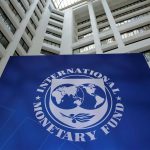Kojo Oppong Nkrumah, the Member of Parliament for Ofoase Ayirebi, has predicted that the economic policy measures outlined in the 2025 budget will result in an increase in the cost of living for Ghanaians.
The ranking member of the newly formed Parliamentary Committee on Economy and Development said these policy changes would place an added burden on the average Ghanaian.
Oppong Nkrumah elaborated on the role of the committee, stating that it was responsible for ensuring the appropriations bill was properly executed with due adherence to budget limits.
He emphasised that the committee would be closely monitoring the implementation of the budget, making sure that any excess spending would require a supplementary budget, which would be reviewed mid-year.
While discussing the impact of the budget, he focused particularly on the rise in the cost of living.
“If you look at the economic policy measures that were rolled out, the cost of living is going to go up, and it is going to have a burden on the average Ghanaian,” Oppong Nkrumah explained.
His statement underscored his concerns over the potential hardships the average Ghanaian citizen might face due to these policies.
In addition to the budget measures, the Ministry of Finance has announced the passage of the Public Financial Management (Amendment) Act, 2025.
This new piece of legislation is seen as a landmark reform aimed at strengthening fiscal discipline and ensuring long-term economic stability.
The PFM (Amendment) Act introduces stricter oversight mechanisms, a more rigid fiscal responsibility framework, and the establishment of an independent Fiscal Council.
The key reforms introduced by the PFM (Amendment) Act include:
-
Enhanced Sanctions for Fiscal Mismanagement:
The new legislation imposes serious penalties, including imprisonment, for ministers or officials who breach fiscal rules. -
New Fiscal Responsibility Measures:
A new rule mandates a primary balance surplus of at least 1.5% of GDP annually, and sets a debt ceiling of 45% of GDP by 2034 to ensure the country maintains debt sustainability. -
Creation of an Independent Fiscal Council:
This council will be tasked with ensuring that the government complies with fiscal responsibility rules, thereby enhancing budget credibility and macroeconomic stability. -
Strengthened Oversight and Accountability:
The Finance Minister will require parliamentary or Cabinet approval before suspending fiscal rules under unforeseen circumstances. -
Consolidation of Fiscal Management Laws:
The amendment unifies existing fiscal laws, eliminating redundancies and streamlining enforcement.
With these reforms, the previous Fiscal Responsibility Act of 2018 has been repealed, and the Presidential Fiscal Advisory Council has been dissolved.
This restructuring aims to enhance fiscal transparency and accountability in Ghana’s economic management.
Despite these reforms, Kojo Oppong Nkrumah’s concerns about the rising cost of living remain a central issue, as he believes the economic policies will make life more difficult for ordinary Ghanaians.
















